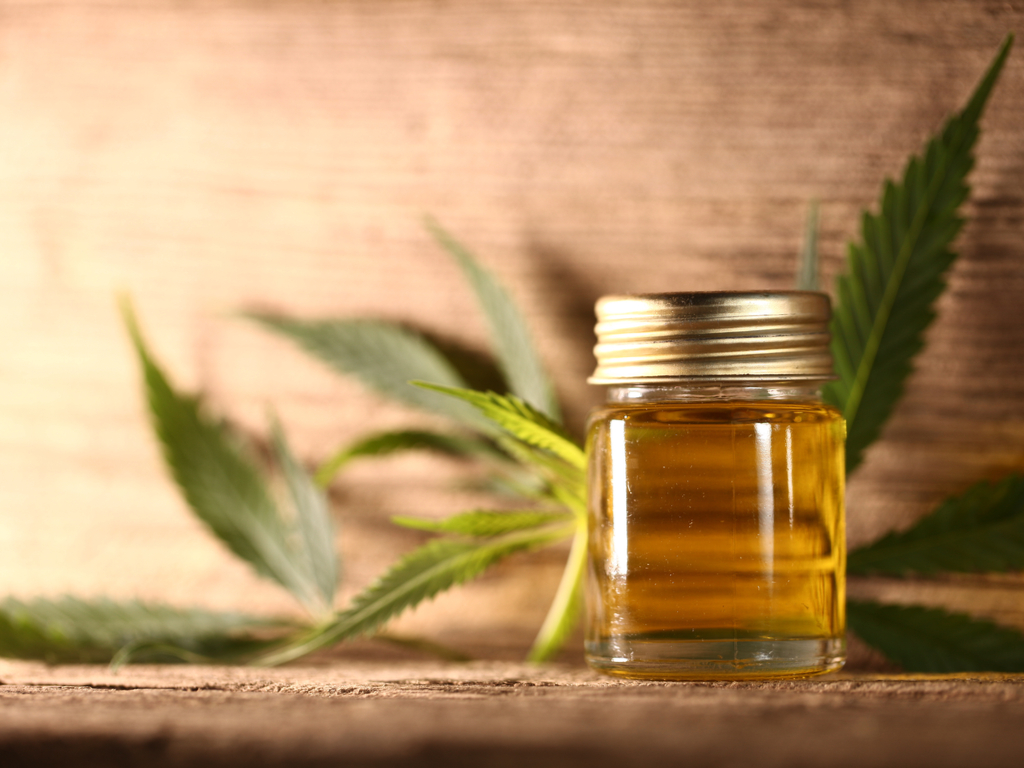FDA Says Most CBD Products May Not Be Safe, and Warns 15 Companies to Stop Selling Them
CBD may pose unknown health risks and cannot be marketed as a dietary supplement, food or therapeutic cure-all.

CBD products may be trendy, but health officials are worried that these products — which are often marketed illegally — may not be safe.
Yesterday (Nov. 26), the U.S. Food and Drug Administration (FDA) issued warning letters to 15 companies that sell CBD products because the products violate federal law. The agency also issued an update to consumers about the popular products, and stressed that there is limited evidence for their safety.
CBD, short for cannabidiol, is a chemical found in cannabis that does not induce a mind-bending high. Although drug developers have long sought to uncover the potential health benefits of CBD, to date, only one CBD product has survived the FDA approval process — a prescription drug to treat rare forms of childhood epilepsy. Nonetheless, consumers can now purchase any number of unapproved CBD products, from oils to chocolate bars to pet foods, from companies that claim their goods deliver therapeutic benefits or help treat disease.
Related: Mixing the Pot? 7 Ways Marijuana Interacts with Medicines
These companies have broken federal law by marketing the unproven health benefits of their CBD products, mixing the drug into food, or advertising CBD as a dietary supplement, the FDA announced yesterday. What's more, these companies may have placed their customers at unknown risk, the FDA said.
"We remain concerned that some people wrongly think that the myriad of CBD products on the market, many of which are illegal, have been evaluated by the FDA and determined to be safe, or that trying CBD 'can’t hurt,'" Dr. Amy Abernethy, the FDA's principal deputy commissioner, said in a statement. In reality, the FDA does not have enough data to say whether CBD can be "generally recognized as safe," and several reports raise questions about the unintended health consequences of consuming the compound.
For instance, when scientists first tested the safety of the approved CBD epilepsy drug, they noted that CBD could inflict damage to the liver. If taken without medical supervision, the damage could prove more extensive, the FDA said in a consumer update on cannabis-derived compounds. Several studies indicate that CBD may alter how the body breaks down other drugs, either increasing or decreasing their potency. In addition, studies in animals suggest the compound may impede the function of testes and sperm, deplete testosterone levels and impair male sexual behavior.
Sign up for the Live Science daily newsletter now
Get the world’s most fascinating discoveries delivered straight to your inbox.
Some reports have uncovered contaminants "such as pesticides and heavy metals" in CBD products, the FDA said. Other studies highlight the potential side effects of taking the compound, including sleep disruption, diarrhea, abdominal pain and mood changes. And questions still linger about how repeated CBD exposure might affect someone over time.
Moreover, the compound may trigger unknown effects in vulnerable populations, including pregnant people and children. Some of the companies called out today specifically market products "for infants and children," who may not metabolize and excrete the drug as adults do, the agency noted.
"As we work quickly to further clarify our regulatory approach for products containing cannabis and cannabis-derived compounds like CBD, we'll continue to monitor the marketplace and take action as needed against companies that violate the law in ways that raise a variety of public health concerns," Abernethy said.
Related: Aspirin to Zoloft: The Scoop on 5 Medicines
The FDA defines a "drug" as any non-food product intended to treat a disease, have a therapeutic use, or affect the structure or function of the body. By this definition, many CBD products count as drugs and should be subject to the same scrutiny as other pharmaceuticals, Abernethy said. In addition, the FDA will continue to evaluate the safety and regulation of CBD products intended for "non-drug uses," according to the consumer update.
"This overarching approach regarding CBD is the same as the FDA would take for any other substance that we regulate," Abernethy said. The agency encouraged consumers to speak with health care professionals about how to treat diseases and conditions with existing drugs, and to be wary of "unsubstantiated claims" associated with CBD products.
The FDA requested that the companies issued letters respond within 15 working days and report how they plan to correct the violations.
- 9 Weird Ways You Can Test Positive for Drugs
- Medicine's Journey Through the Body: 4 Stages
- The Drug Talk: 7 New Tips for Today's Parents
Originally published on Live Science.


Nicoletta Lanese is the health channel editor at Live Science and was previously a news editor and staff writer at the site. She holds a graduate certificate in science communication from UC Santa Cruz and degrees in neuroscience and dance from the University of Florida. Her work has appeared in The Scientist, Science News, the Mercury News, Mongabay and Stanford Medicine Magazine, among other outlets. Based in NYC, she also remains heavily involved in dance and performs in local choreographers' work.










